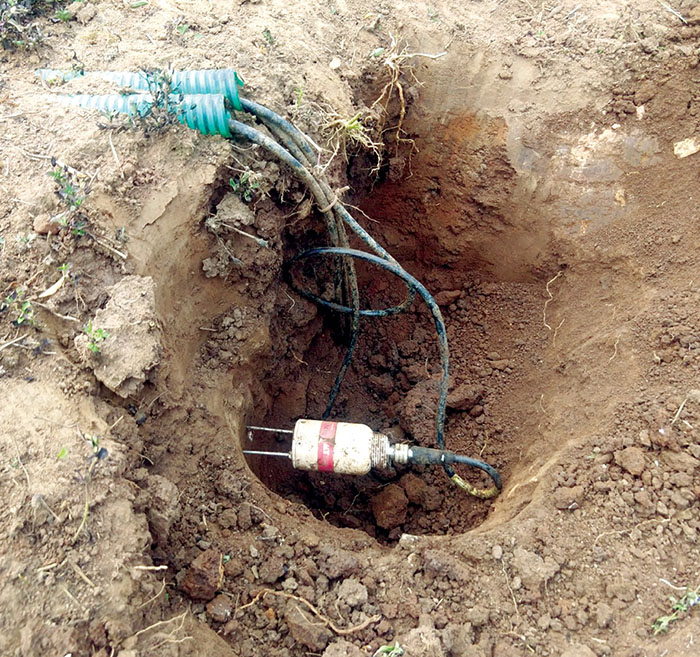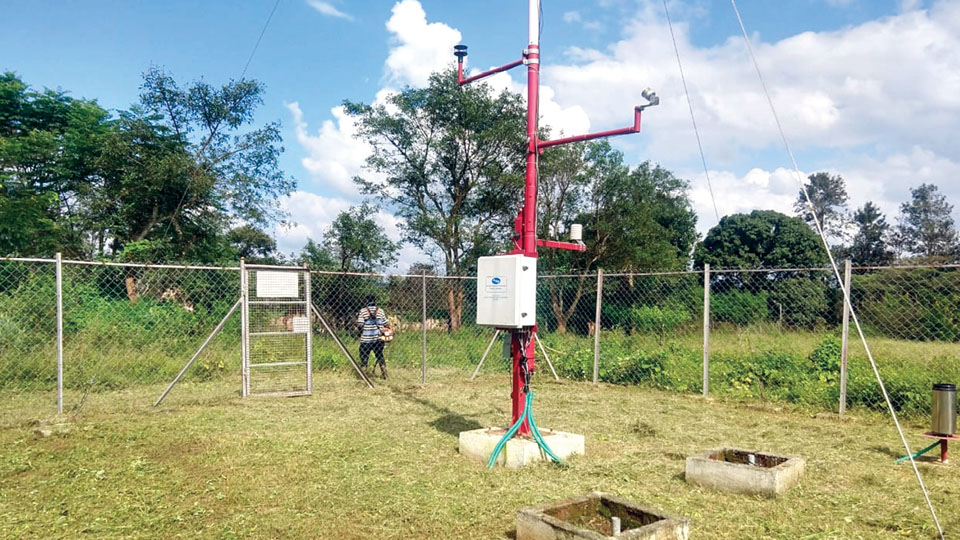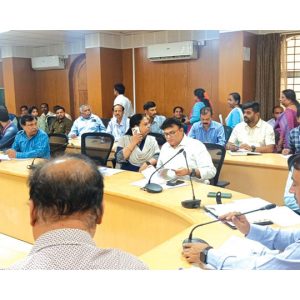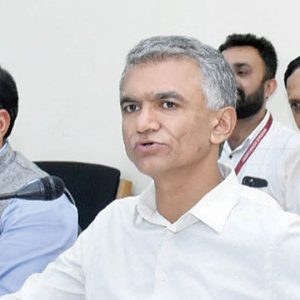Agro-Met Units in Kodagu, Mandya, Chamarajanagar and Ramanagara to shut operations from Feb. 29
Kushalnagar: Dealing a huge blow to Niti Aayog’s advice on growing climate-based crops, the Centre has decided to shut down the District Agro-Met Units (DAMUs) in Kodagu, Mandya, Chamarajanagar and Ramanagara. The reason attributed for the closure is reportedly a fund crunch.
These Agro-Met Units provided vital agrometeorological advisory services to thousands of agricultural workers and farmers. Effective March 1, 2024, the Union Government’s directive to cease operations after Feb. 29 will leave farmers without this crucial support.
A flagship initiative
The Gramin Krishi Mausam Seva (GKMS) scheme is a flagship initiative of the Government of India, under the Ministry of Earth Sciences (MoES), dedicated to providing weather-related services crucial for farmers’ decision-making in day-to-day agricultural operations.
This collaborative effort between the India Meteorological Department (IMD) and the Indian Council of Agricultural Research (ICAR) led to the establishment of 200 District Agro-Met Units (DAMUs) across India in 2018-19. With continuous advancements in observational networks and forecasting technologies, the Agro-Met Advisory Service (AAS) network was expanded to the sub-district / block level.
This expansion is facilitated through the establishment of District Agro-Met Units (DAMUs) within the premises of Krishi Vigyan Kendras (KVKs) operated by ICAR and State Universities, facilitated by Agricultural Technology Application Research Institutes (ATARIs).
In Karnataka, 10 Krishi Vigyan Kendras (KVKs) have Agro-Met Units (Ballari, Chamarajanagar, Chikkamagaluru, Kodagu, Kolar, Koppal, Mandya (VC Farm), Ramanagara, Tumakuru and Yadgir) and they will cease operations from Feb. 29, affecting a total of 199 units nationwide. Consequently, 398 staff members employed in these units will lose their jobs.

WhatsApp groups
These units played a critical role in disseminating agrometeorological advisories to district and block-level farmers via WhatsApp groups, offering essential guidance on agricultural practices. For instance, the Agro-Met Unit at Gonikoppal in Kodagu has over 30 WhatsApp groups and 10,000 farmers are participants.
The unit provides localised information about the weather forecast and even functions as a call centre where the staff answer all the questions posed by farmers and growers on paddy, coffee, black pepper, ginger, arecanut and orange cultivation. Advisories were also sent about livestock maintenance.
Weather summary report, temperature, humidity and rainfall forecast data is disseminated every Tuesday and Friday. These weather bulletins are also accessible to farmers through the Meghdooth app.
Significant risk to farmers
The closure of these Agro-Met Units poses a significant risk to farmers who rely on these advisories for their day-to-day agricultural activities. Moreover, the absence of such forecast could lead to substantial losses for farmers, particularly in regions prone to weather-related challenges like landslides and flash floods.
The Agro-Met Unit at Gonikoppal in Kodagu was set up as the district receives the highest rainfall and the patterns are different in each of the five taluks. Also, farmers need localised information to plan their crops, harvest, irrigation, remove weeds, dry and do other activities. Apart from weekly reports, daily alerts are supplied by this Agro-Met Unit in case of sudden developments in weather.
The advisory services are crucial for coffee growers, as they offer forecasts up to five days in advance and accurately predict heavy rainfall three hours beforehand. These alerts were not only beneficial to farmers but also served as essential tools for the district administration.
Authorities utilised this information to initiate actions such as evacuating people from flood-prone areas and implementing preventive measures. Additionally, these forecasts facilitated timely decisions by local authorities, including school closures, to mitigate the impact of adverse weather conditions.
No local but only district-level advisories from March 1
With the discontinuation of these Agro-Met Units, the responsibility for local forecasting now rests heavily on automatic field units like the Agro-Meteorological Field Unit (AMFU) at the Organic Farming Research Station in Naganahalli (OFRSN), Mysuru or the existing KVKs.
However, these units may only cover districts rather than the smaller administrative units like taluks and blocks, as done by the Agro-Met Units. Farmers are worried that district-level advisories may not adequately address the specific needs of all areas, leaving certain regions without sufficient guidance for their agricultural activities.
Speaking to Star of Mysore, S.K. Chengappa, Agro-Met Observer at ICAR-KVK in Gonikoppal, Kodagu, expressed deep concern over the closure of Agro-Met Units, emphasising the substantial loss incurred by farmers and horticultural communities.
He highlighted the efficiency and structured approach of the Agro-Met Units, with plans underway to extend their reach to the Gram Panchayat level. He said that while farmers may still access district-level information starting March 1, the absence of localised, taluk-level and village-level information will create a significant gap in essential agricultural guidance.
“As of now, we do not have staff or resources to continue the Agro-Met Unit. Will have to see how to continue the local farmers’ assistance,” said Virendra Kumar, a scientist at ICAR-KVK in Gonikoppal.








Recent Comments